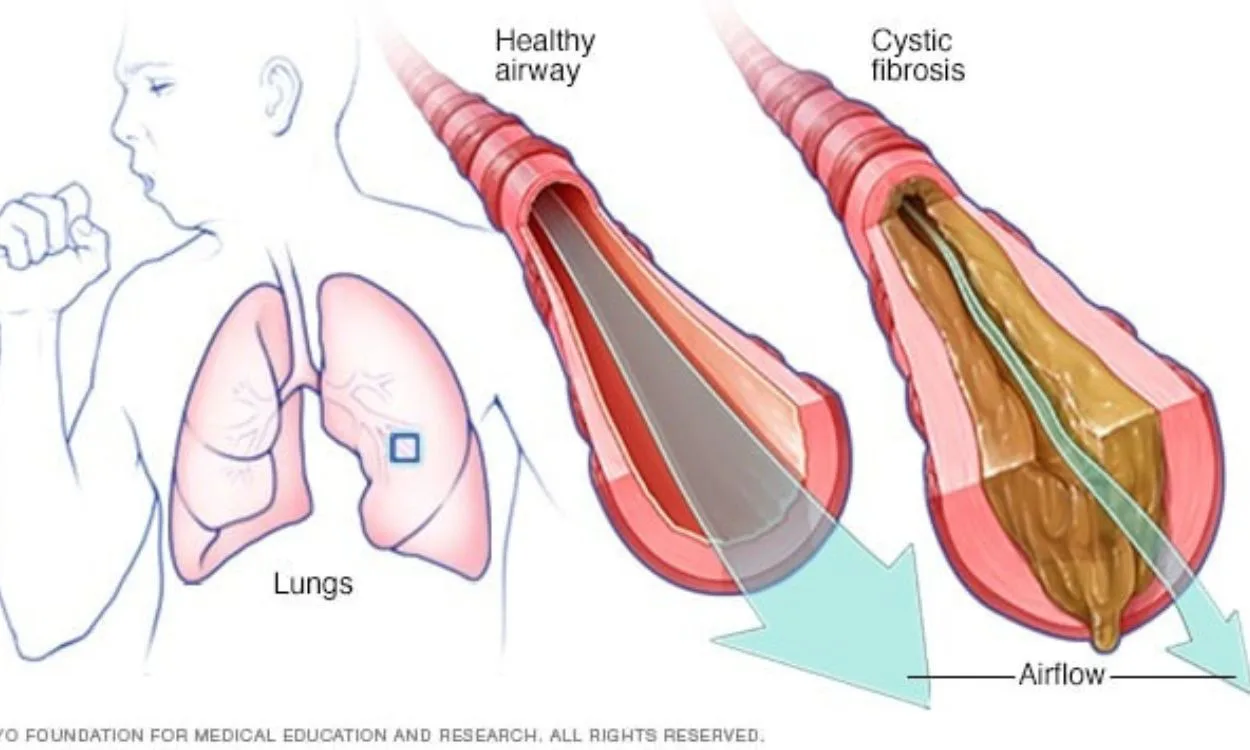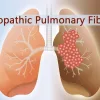Cystic Fibrosis (CF): Understanding the Disease and Its Impact
Introduction
Cystic Fibrosis (CF) is a genetic disorder that primarily affects the respiratory and digestive systems. It is a progressive and life-threatening condition that can significantly impact an individual’s quality of life. In this article, we will delve into the details of CF, its symptoms, causes, and management strategies.
What is Cystic Fibrosis?
Cystic Fibrosis is a hereditary disease caused by a mutation in the CFTR (cystic fibrosis transmembrane conductance regulator) gene. This gene is responsible for regulating the movement of salt and water in and out of cells. The mutation leads to the production of abnormal CFTR proteins, resulting in the accumulation of thick, sticky mucus in various organs.
Symptoms and Clinical Manifestations
The symptoms of CF can vary widely from person to person, but the most common signs include:
- Persistent coughing with thick mucus
- Frequent respiratory infections, such as pneumonia and bronchitis
- Shortness of breath and wheezing
- Poor growth or weight gain despite a good appetite
- Salty-tasting skin
- Digestive issues, including greasy stools, abdominal pain, and poor nutrient absorption
Causes and Inheritance Pattern
Cystic Fibrosis is an autosomal recessive disorder, meaning that both parents must carry a copy of the mutated CFTR gene for their child to develop CF. If both parents are carriers, there is a 25% chance that their child will have CF. If only one parent is a carrier, the child will not have CF but may become a carrier themselves.
Diagnosis and Screening
CF can be diagnosed through a combination of tests, including a sweat chloride test, genetic testing, and evaluation of symptoms. Newborn screening programs are also available in some countries, including India, to detect CF early on, allowing for prompt intervention and management.
Management and Treatment
While there is currently no cure for CF, early diagnosis and comprehensive treatment can significantly improve the quality of life for individuals with CF. The treatment plan usually includes:
- Airway Clearance Techniques: These techniques help loosen and remove mucus from the lungs, reducing the risk of infections and improving lung function. Techniques like chest physiotherapy, postural drainage, and exercise are commonly used.
- Medications: Various medications, including bronchodilators, antibiotics, and mucolytics, may be prescribed to manage symptoms, prevent infections, and improve lung function.
- Nutritional Support: CF affects the digestive system, leading to poor nutrient absorption. A high-calorie, high-protein diet, along with enzyme supplements to aid digestion, is crucial in managing CF-related malnutrition and promoting growth.
- Exercise and Physical Activity: Regular exercise can help improve lung capacity, strengthen muscles, and enhance overall fitness. It is important to work with healthcare professionals to design an exercise plan suitable for each individual’s needs.
Living with Cystic Fibrosis
Living with CF can be challenging, both for individuals with the disease and their families. It requires a multidisciplinary approach involving healthcare professionals, caregivers, and a supportive community. It is important to:
- Stay compliant with prescribed medications and treatment plans.
- Follow a balanced diet and consume adequate calories and nutrients.
- Stay physically active and engage in appropriate exercises.
- Attend regular medical check-ups and screenings.
- Seek emotional support and connect with support groups.
Fitpaa: Assisting Individuals with Cystic Fibrosis
Fitpaa, an AI-driven health and fitness app, can play a significant role in supporting individuals with CF in their journey towards better health. While Fitpaa’s primary focus is on overall wellness, it can provide valuable resources and tools to aid in managing CF.
- Personalized Fitness and Nutrition Plans: Fitpaa can create customized fitness and nutrition plans tailored to the specific needs and limitations of individuals with CF.
- Real-time Guidance and Monitoring: With Fitpaa’s real-time guidance and monitoring features, individuals with CF can track their progress, receive reminders for medications and treatments, and stay motivated to follow their prescribed routines.
- Supportive Community: Fitpaa offers a supportive community where individuals with CF can connect with others facing similar challenges, share experiences, and find support and encouragement.
- Mental Health Support: Fitpaa recognizes the importance of mental health in overall well-being. Through its cognitive behavioral therapy (CBT) techniques, Fitpaa can help individuals with CF manage stress, anxiety, and depression that may arise from living with a chronic condition.
Conclusion
Cystic Fibrosis is a complex genetic disorder that requires ongoing management and support. By understanding the disease, its symptoms, and the available treatment options, individuals with CF can take proactive steps to improve their quality of life. Fitpaa, with its comprehensive approach to health and fitness, can serve as a valuable tool for individuals with CF in their journey towards better health. Download the Fitpaa app today and begin your personalized wellness journey.









